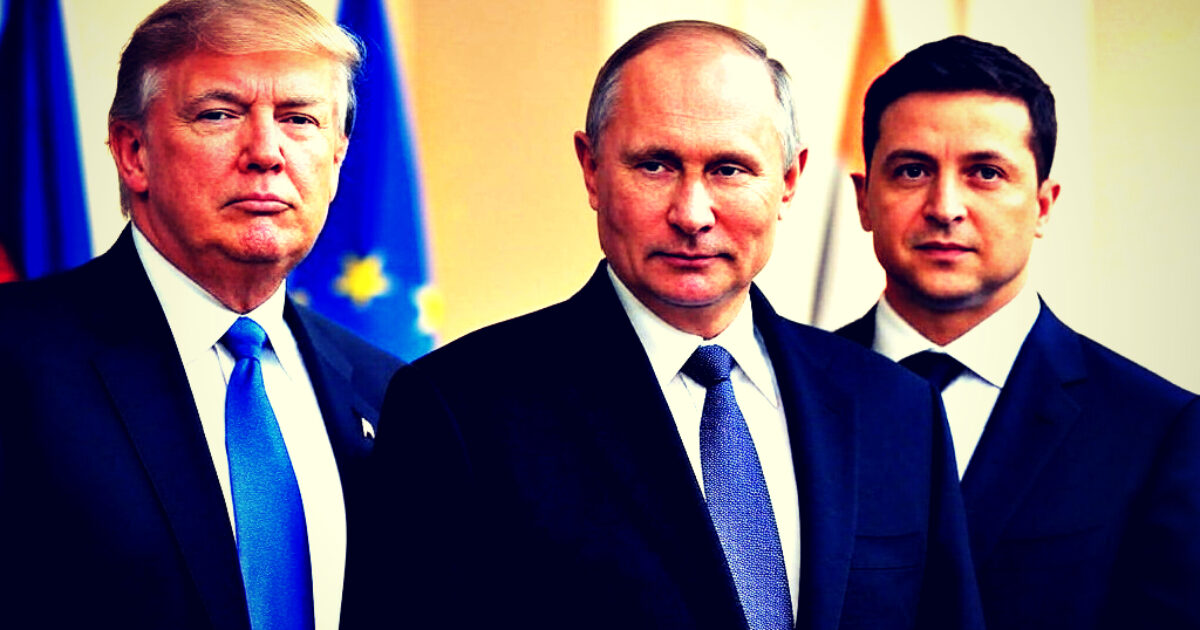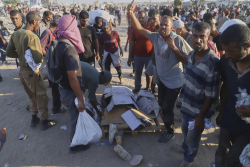
U.S. President Donald Trump stated on Truth Social that Ukrainian President Volodymyr Zelenskyy holds the responsibility for concluding the conflict with Russia.
He suggested Zelenskyy could resolve the war swiftly by accepting certain conditions, including relinquishing claims to Crimea and forgoing NATO membership.
Russia annexed Ukraine’s Crimean peninsula in 2014 during the Obama administration without military resistance from Kyiv.
This action received widespread international criticism and preceded Moscow’s support for separatists in eastern Ukraine. The full-scale invasion began in February 2022, escalating the ongoing tensions.
Trump’s remarks preceded a scheduled meeting on August 18, 2025, in Washington with Zelenskyy and European leaders.
The session followed Trump’s three-hour discussion with Russian President Vladimir Putin in Alaska on August 15, 2025, which produced no ceasefire but was termed productive by Trump.
Reports indicate Putin proposed freezing front lines if Ukraine withdrew from parts of Donetsk and Luhansk oblasts.
Zelenskyy dismissed the Russian offer prior to the summits, arguing it would weaken Ukraine’s defenses and enable future attacks.
Ukraine controls approximately one-quarter of Donetsk, including a fortified line of cities established since 2014. This “fortress belt” serves as a primary barrier against Russian advances.
The Institute for the Study of War, based in Washington, noted in an August 12, 2025, report that Putin’s terms require Ukraine to surrender vital unoccupied areas in Donetsk without reciprocal gains.
Russian forces lack the capability to seize these positions quickly without concessions. A separate ISW assessment on August 17, 2025, described Russia’s calls to address war “root causes” as demands for major NATO compromises that could undermine alliance stability and European security.
In a Fox News appearance after the Alaska talks, Trump encouraged Zelenskyy to negotiate, highlighting Russia’s strength and Ukraine’s resilience.
He portrayed Russia as a significant power and commended Ukrainian troops. Trump has claimed responsibility for resolving multiple conflicts since taking office, including averting potential nuclear risks, while attributing the Ukraine situation to prior U.S. leadership.
Former U.S. Secretary of State Antony Blinken stated in 2024 at the United Nations that the war ends if Russia halts fighting, but Ukraine ceases to exist if it stops.
Russia insists any settlement must tackle underlying issues, such as NATO’s expansion eastward. Moscow also cites alleged mistreatment of Russian-speaking populations in Ukraine as a factor.
Putin reiterated demands in June 2024 for Ukraine to recognize Russian authority over Luhansk, Donetsk, Zaporizhia, and Kherson oblasts entirely, even unoccupied sections.
Recent reports mention postponed talks in Qatar on a moratorium for strikes on energy infrastructure, rescheduled for August 22, 2025.
















